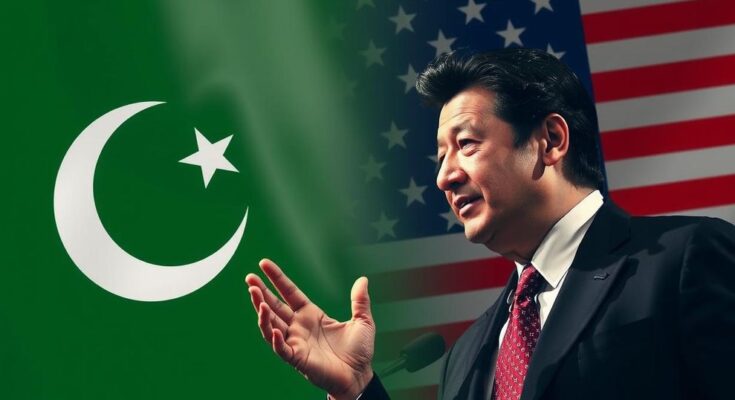Donald Trump’s recent election has sparked discussion of its implications for U.S.-Pakistan relations, particularly concerning former Prime Minister Imran Khan, who is currently imprisoned. Analysts argue that U.S. engagement with Pakistan is unlikely to be prioritized, and while there are hopes for Khan’s release, much depends on the evolving geopolitical landscape, particularly with China. Experts foresee limited change in the bilateral relationship amid broader foreign policy challenges facing the new administration.
The recent election of Donald Trump has prompted mixed reactions in Pakistan, particularly from former Prime Minister Imran Khan, who remains incarcerated. Khan lauded Trump’s victory on social media, expressing hope that it may improve Pakistan-U.S. relations based on shared values of democracy and human rights. However, analysts caution that engaging with Pakistan is unlikely to be a priority for the new administration. While some in Khan’s party believe Trump may advocate for his release, U.S. officials emphasize noninterference in Pakistan’s internal matters. Pakistan’s relations with the U.S. have been complex, marked previously by accusations from Khan against the U.S. for interference in his ousting. Observers note relations have improved recently under President Biden, with a U.S. ambassador appointed after years of vacancy. The Biden administration exhibited caution regarding Pakistan’s internal politics, though U.S. lawmakers have urged a focus on human rights, specifically Khan’s imprisonment following controversial elections. As concerns grow about Pakistan’s increasing reliance on China, experts anticipate that this relationship will face scrutiny under Trump’s leadership, particularly given his policy stance on China. With Pakistan precariously dependent on Chinese economic support, the Trump administration may foster skepticism towards Islamabad’s ties with Beijing. Foreign policy analysts indicate that while Pakistan generally lacks prominence in U.S. interests, developments in the Middle East or exacerbated Iran tensions could alter this perception. Still, they project a continuance of minimal engagement, primarily focused on economic and security issues, without substantial diplomatic shifts on the horizon.
The dynamics of U.S.-Pakistan relations are influenced by recent political changes in the U.S. and Pakistan. Donald Trump’s election has reignited discussions regarding his prior interactions with Khan and the direction future relations may take, particularly as Khan faces political challenges domestically. Analysts emphasize the geopolitical considerations at play, especially Pakistan’s relationship with China, which poses additional complexities for U.S. engagement under Trump’s administration. Furthermore, the history of U.S. aid to Pakistan has waned significantly in recent years, affecting the bilateral rapport.
In conclusion, while Imran Khan’s hopes for improved U.S. engagement under Donald Trump reflect personal and political aspirations, the prevailing analysis suggests that Pakistan is unlikely to be a focal point of U.S. foreign policy. The complexities of its relationship with China and ongoing internal challenges will need to be navigated carefully, as the future of U.S.-Pakistan relations remains undetermined. Continued attention to economic and security collaboration appears to be the most realistic expectation moving forward.
Original Source: www.aljazeera.com




